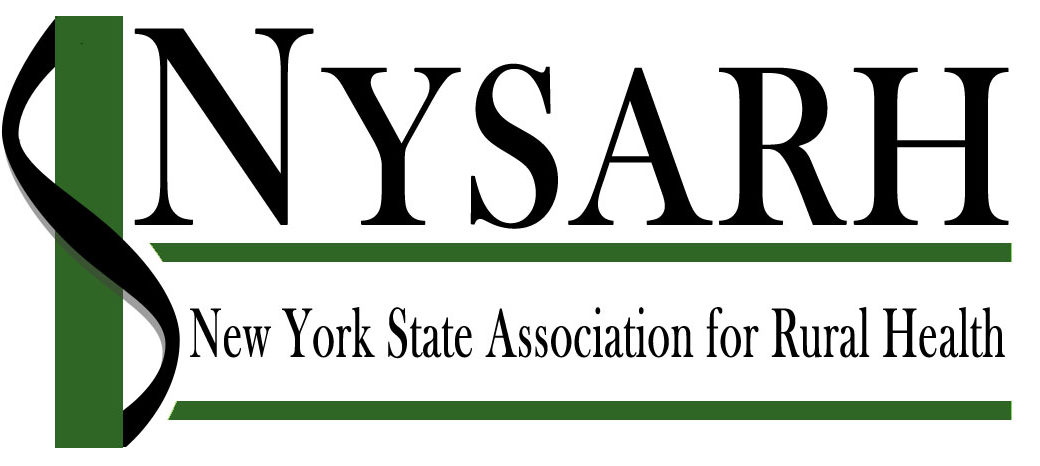NYSARH Receives $150,000 Grant to Empower Rural Health
New York State Association for Rural Health (NYSARH) was awarded a grant of $150,000 by the Health Foundation for Western & Central New York. This generous grant is a significant step forward in our ongoing mission to enhance the health and well-being of rural communities across the state.
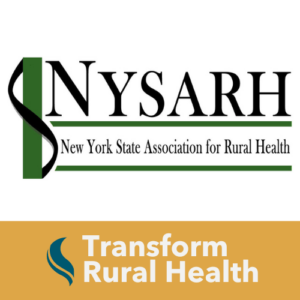
NYSARH has long been recognized as the leading advocate for rural health in New York State. Our organization, established in 2001, has continually grown in membership and influence over the years. With 105 organizational members and 31 rural health networks statewide, we collaborate with various stakeholders to address the unique challenges faced by rural populations.
Rural communities often grapple with significant health disparities stemming from structural issues such as limited access to healthcare providers, high poverty rates, food insecurity, and inadequate infrastructure. NYSARH is committed to advocating for change on these fronts while also highlighting the strengths and resilience of rural areas.
This grant comes at a pivotal moment for NYSARH as we embark on a new strategic plan. With plans to hire an executive director in 2024 and launch a fundraising campaign, we are poised to amplify our efforts and extend our reach to even more communities in need.
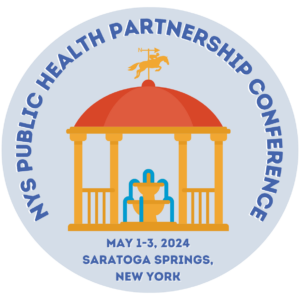
The Public Health Partnership Conference will be held in-person in 2024. The event will be held in Saratoga Springs, NY May 1-3, 2024.
Attendees will have the opportunity to network with colleagues from across the state and participate in general plenary sessions presenting a wide array of public health knowledge and insights from local county health department directors to community-based organizations. Attendees will have the choice of several breakout sessions to choose from, visit exhibitor booths, attend wellness events and view poster presentations.
Please join the NYS Association for Rural Health for a buffet dinner with cash bar at the Saratoga Springs Holiday Inn 232 Broadway, a 15 minute walk from the conference location. All are welcome.
Pre-Conference: Learning Institute: Wed May 1st 12:30- 4:30
Social Determinants of Health Across the Lifespan: Strategies to Address the Impacts of Poverty
PHPC Photo Contest
Call for Submissions: Climate Health is Public Health: Submit your photos for a chance to win a prize!
The NYSPHA Climate Committee invites NYS Public Health Partners from NYSPHA, NYSACHO, and NYSARH to join in the fun. Show us how you care about climate, the environment, and a healthy you.
Email a photo of yourself participating in an activity related to environmental health at nysphaclimate@gmail.com or tag them in a post on LinkedIn, Facebook, or Instagram with the hashtag #climatechangeshealth. The photo could be from an event, a volunteer experience, a project you worked on, or just a photo of yourself enjoying a local outdoor space that you believe makes your community a healthier place. Let’s join together to raise awareness that climate health IS public health!
Everyone who submits a photo to us either via email at nysphaclimate@gmail.com or by uploading a photo to LinkedIn, Facebook, or Instagram using the hashtag #climatechangeshealth will be entered to win a special prize during our upcoming annual conference taking place May 1-3 in Saratoga Springs, NY. We will “spin the wheel” to select our winner and make our announcement.
You don’t have to be present to win
PHPC CAPTAIN Donation Items
Help Us Help Them
Each year, we like to support a local charitable organization in the host city of our conference. This year, we will be supporting CAPTAIN Community Human Services based in Saratoga Springs. CAPTAIN provides a range of services to support and empower all ages including feeding the hungry, sheltering the homeless and keeping kids safe from sex trafficking.
You can help us help them in two ways. We will have a raffle at our conference with some prizes donated by organizations (if you would like to donate a raffle prize, please contact us) and all money raised will go directly to CAPTAIN.
We are also collecting personal care items that they most need. Please consider bringing any of the following items to our conference and we will have a collection box near registration where you can place them. The items most needed are: Soap, Shampoo, Deodorant, Toothpaste, Toothbrushes, Hand soap, Lotion, Feminine Hygiene Products, Toilet Paper, Diapers, Baby wipes, Household cleaners, Detergent, Band-Aids, Combs & Brushes, Hair ties, Chap-stick, Razors and Shaving cream.
Thank you for helping us to help our neighbors!
NYSARH Interactive Map of Members

Project Afar
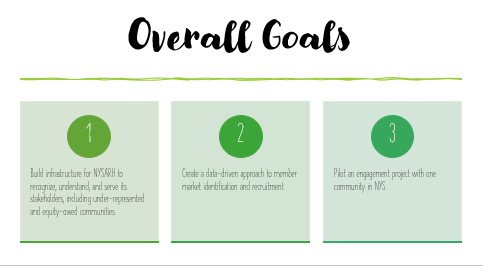
- Analysis of Diversity Dashboard data: Glean insights from the NYSARH Diversity Dashboard about under-represented communities, areas of need and of opportunity. Output: Chartbook, webinar (free to NYSARH members, for purchase by non-members). Data/chartbook is an input for phases 2 and 3.
Evaluation: We will track engagement with the chartbook and webinar.
- Membership Markets, Recruitment and Retention Strategy: Understand our member and stakeholder markets.
Output: Market report and 5-year member development plan including actions and targets.
Evaluation: We will monitor our progress in meeting recruitment and retention benchmarks and targets from the membership development plan and report annually to the NYSARH board.
- Community Engagement Pilot Project: Engage with one community that is currently under-represented at NYSARH.
Outputs: (a) Structured Interview Matrix (SIM) reports: full report, executive summary to NYSARH including recommended actions and opportunities to support the community; community report summarizing the consultation outcomes and NYSARH’s plan for action; webinars. (b) NYSARH Community Engagement Framework: A guide for implementing the program in other communities, incorporating learnings from the pilot study. (c) Additional academic outputs (journal publication, conference presentations) may be pursued.
Evaluation: (a) SIM evaluation – Pre- and post-SIM surveys (b) Action Implementation (c) Member Impact.
Cancer Screening Resources Available for Use
The HHS Office of Climate Change and Health Equity (OCCHE) is on a mission to address the health impacts of climate chang
Cancer screening is known to be much lower in rural geographies which leads to more advanced cancer upon diagnosis and for many reasons, worse outcomes. Genentech has digital cancer screening resources available to your organization or community to assist in increasing awareness around the importance of screening. Take a look at the attached document for more information on available resources. You can access some of the resources at www.cancerscreenweek.org/resources. Be sure to click on “Additional Screening Resources” as well.
Here are some ideas for when you may want to highlight these resources in newsletters, at events, etc.
- The week of Mother’s Day – May 12th, 2024
- Breast Cancer Awareness Month – October
- Lung Cancer Awareness Month – November
- Cancer Screen Week – December 4-8, 2024
If you’d like to discuss further or have any questions, please contact Alex Gilroy at gilroy.alexandra@gene.com

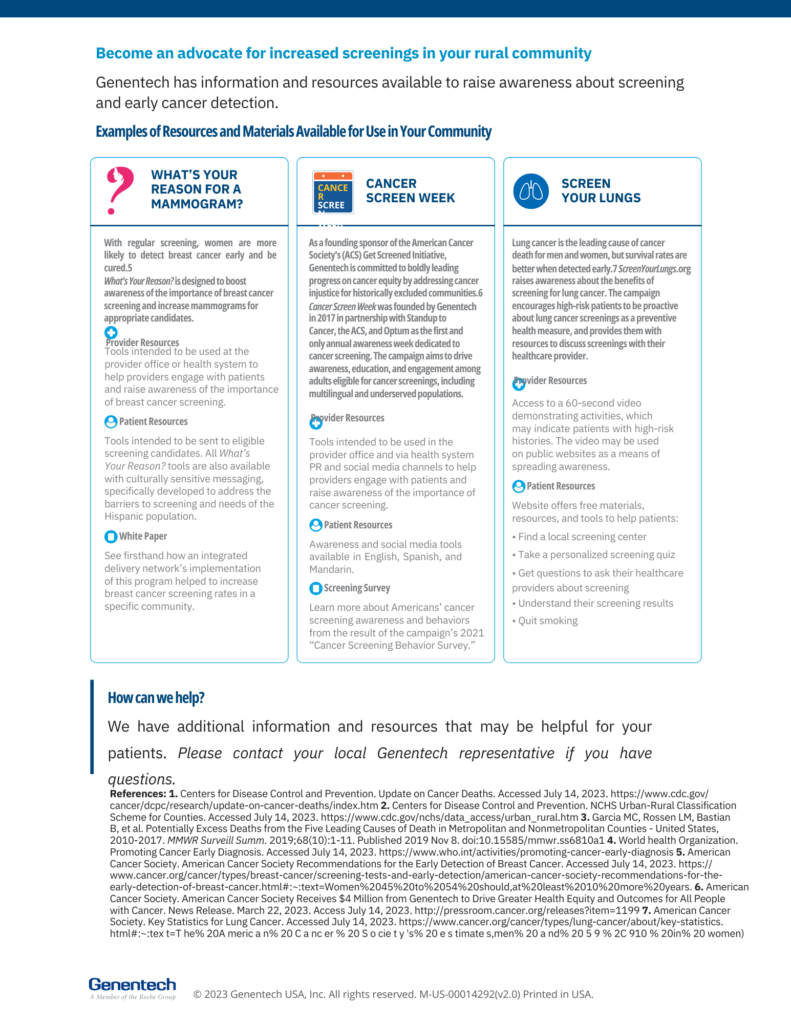
Rural Resources Fair
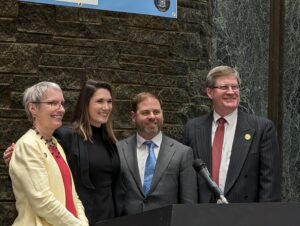
Pictured: Senator Rachel May, Senator Michelle Hinchey, Corey Moser: Executive Director of the Commission for Rural Resources, Brian Murray: USDA State Director
We extend our heartfelt gratitude to Senator Rachel May (D-48th District) and for the opportunity to exhibit at the Rural Resources Fair on March 27, 2024. Their dedication to supporting rural communities is commendable, and we are honored to have been a part of this important event. Thank you for your ongoing commitment to providing valuable resources and opportunities to those in need.
AHRQ Training
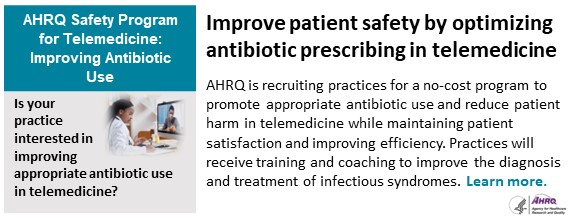
Age-Friendly Allegany County Coalition
Age-Friendly Allegany County is a community-driven initiative situated in Allegany County, New York,
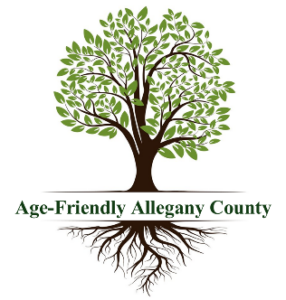
dedicated to fostering inclusive environments that are welcoming and livable to individuals of all ages, aiming to transform Allegany County into a good place to live, work, worship, and play. This initiative is overseen by Ardent Solutions and the Allegany County Office for the Aging.
In 2020, the Allegany County Board of Legislators approved a resolution, marking the initial stride towards Allegany County’s journey to becoming an Age-Friendly Community under the auspices of AARP. Extensive data collection and community engagement culminated in the development and endorsement of the Age-Friendly Action Plan in 2022, serving as a guiding framework for Allegany County in its Age-Friendly progression.
The Age-Friendly Action Plan encompasses all eight domains crucial for Age-Friendly communities, encompassing Housing, Transportation, Outdoor spaces and buildings, Community support and health services, Communication, and information, Social participation, Respect and social inclusion, and Civil participation and employment. The detailed plan is accessible at Allegany County Age-Friendly Action Plan.
Presently, the Age-Friendly Allegany County Coalition is actively engaged in the following projects focused on advancing Age-Friendly initiatives.
Age-Friendly Universities: Collaborating with Alfred Universities’ School of Psychology and Gero
ntology, students enroll in a course committed to promoting positive and healthy aging and enhancing the lives of older members of the Alfred, NY community through innovative educational programs, research agendas, curriculum development, online education, health and wellness activities, arts and culture programs and civic engagement opportunities. The curriculum offers students an overview of AARP’s Age-Friendly domains, the Age-Friendly University Global Network’s 10 AFU principles and requires students to implement Human Centered Design in creating on-campus opportunities for olde
r adults. Additionally, students complete the age-friendly environmental scan and administer the social climate survey, analyze the results, and seek administrative endorsement. Age-Friendly Universities is supported by the Health Foundation for Western and Central New York. The Fall 2023-24 semester culminated in a student-led “Computers and Cookies” workshop engaging 24 older adults in technology education and an intergenerational team-based trivia game using the online platform Kahoots.
Emergency Preparedness: Fifty (50) older adults from Allegany County participated in an emergency preparedness educational workshop, where they developed emergency preparedness plans and received emergency preparedness kits. This initiative was made possible through a grant from the Dr. Lyle F. Renodin Foundation.
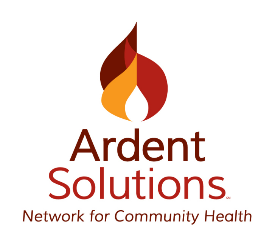
Uniper Cares: The Uniper Cares and Thriving in Place Technology Loaner and Digital Literacy Program, by Ardent Solutions’ aims to combat isolation and depression among older adults by leveraging technology. Year 1 of this initiative provides seventy-five (75) older adults with access to the Uniper Cares virtual platform. Through this platform, home-bound older adults can engage in a wide range of live activities, join vibrant communities, attend mental and physical fitness classes, partake in recreational and social activities, have HIPAA-compliant physician visits, receive visits from friendly volunteers, and more. These services are easily accessible via TV, tablet, mobile phone, or web browser. Older adults lacking technology equipment can benefit from Ardent Solutions’ technology loaner program and can receive in-home digital literacy training. Additionally, all participants undergo screening for depression and social isolation and are subsequently enrolled in Ardent Solutions’ Healthy Ideas Program. Uniper Cares is supported by the Mother Cabrini Health Foundation.
Save the Date!
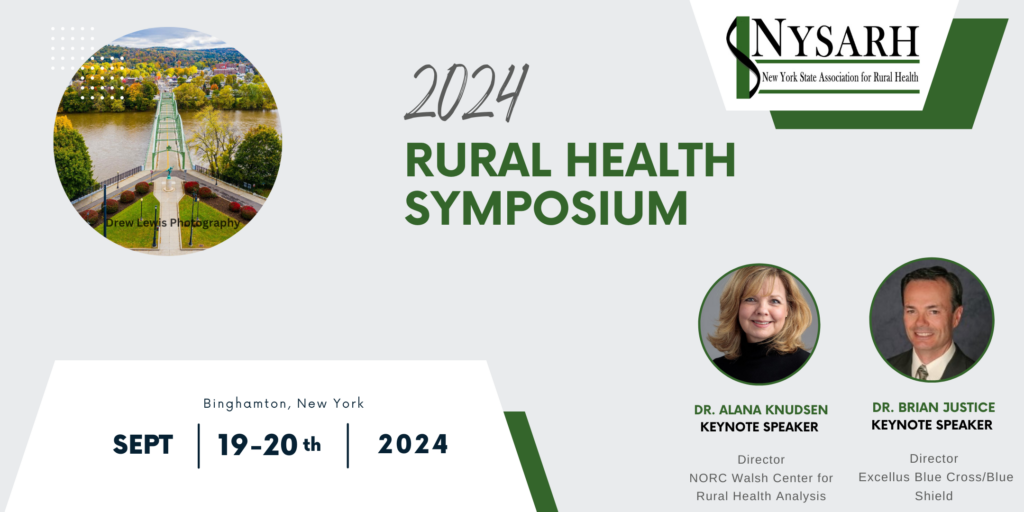
Call for Speakers for Rural Health Symposium
Deadline April 30th 2024
The New York State Association for Rural Health is accepting proposals for presentations for the 2024 Rural Health Symposium. Please consider submitting an application to share your expertise or best-practice model with 100 to 150 anticipated participants on either Thursday, September 19th or Friday, September 20th, at the Holiday Inn in Binghamton, New York.
The NYSARH Rural Health Symposium is a unique opportunity that attracts professionals from all across New York State representing areas of academia, politics, aging services, behavioral health services, the private and non-profit sector, and the health care industry. The NYSARH Rural Health Symposium has established itself as an important forum for rural leaders to gather and discuss key issues impacting the delivery of health and social care across upstate New York.
NYSARH is pleased to announce that the 2024 Symposium is co-hosted by the O’Connor Office of Rural Health, Decker School of Nursing and Health Sciences, SUNY Binghamton.
Keynote Speakers Alana Knudsen, Director of the NORC Walsh Center for Rural Health Analysis and Brian Justice, Medical Director at Excellus Blue Cross/Blue Shield
Presentation Submission Guidelines:
The symposium strives to provide practical and meaningful information on current trends that influence the ability of communities to provide and/or access quality and affordable health care to rural New Yorkers. Presentation by individuals or teams will be considered in each of the session tracts. Presentations should be engaging and provide for Q&A. Content should be innovative, informative and promote discussion and networking.
Presentations should reflect the themes selected by the planning team and specifically address rural circumstances.
We anticipate two break-out session periods, one Thursday afternoon and the other Friday morning, each with three concurrent sessions. Sessions will be about one hour and may include more than one submitted topic if the planning team identifies proposals that may be combined.
Please complete the questionnaire Here (Deadline April 30th 2024)
https://www.surveymonkey.com/r/RuralSymposium2024
A Prescription for Rural Healthcare: Bolstering Residency Programs in New York
by Elana Sitnik
Across New York State, rural communities face a critical shortage of primary care physicians, hindering access to essential healthcare. Although New York State trains more medical residents than any other state, there are very few residency programs located in rural communities. A 2019 report by the Primary Care Development Corporation highlights the dwindling number of primary care physicians in rural communities, leaving rural New Yorkers with longer wait times for medical appointments and limited access to life-prolonging and cost-saving preventative care. (1,2)
The solution lies not only in attracting doctors to these areas but also in developing a sustainable source of future physicians who understand the unique needs of these underserved rural communities. Smaller residency programs, which are often located in rural communities struggling with primary care access, can play a vital role in improving access to healthcare in rural communities. Research shows that doctors who train in programs serving rural populations are far more likely to choose to practice in those areas after residency.
Dr. Caleb Atkins is one of only two second-year family medicine residents at Samaritan Medical Center in Watertown, NY. A native of Jefferson County, Dr. Atkins grew up just 20 miles away in the small town of Carthage, NY. His interest in practicing rural family medicine stems from witnessing his parents’ poor health outcomes due to limited healthcare access during his upbringing. Dr. Atkins appreciates his training environment, stating, “Training in the Family Medicine Residency at Samaritan Medical Center provides me with unfettered access to a wide variety of diseases in a close-knit residency setting.” He describes his medical training as indispensable. However, he expresses concern about the future of programs like his, noting, “The program’s inability to secure more federal funding for expansion is worrisome.” He emphasizes, “Without additional doctors being trained in my area, healthcare outcomes will continue to suffer.”
By strengthening Medicaid funding for these rural and safety-net hospital residency programs, the New York State legislature can solve three of our state’s public health challenges in just one move: the physician shortage, increasing access to care for rural communities, and keeping physicians who train in New York in the state once their training is complete. Increased funding would allow these programs to expand residency slots, directly addressing the physician shortage in New York. Additionally, more residency positions in rural settings will translate into a larger pool of physicians qualified to address the specific needs of rural communities, and studies show that increased exposure to rural healthcare during residency has potential to encourage graduates to consider practicing in rural areas (3).
Dr. Jocelyn Young, Designated Institutional Official at Chenango Memorial Hospital is leading the creation of a rural family medicine residency program in the community of Norwich, in Central New York. She highlights that recruitment of primary care physicians to the small community is very challenging. CMH has embarked on creating a residency program that seeks to recruit, train, and retain the next generation of family physicians who will serve the area. “Through creating a program that allows residents to train in the environment that we hope they will practice in, this rural farming community will be served by dedicated family physicians for generations to come.” One of the challenges in creating a new residency program is finding the financial resources to offset the cost of creating and running an excellent quality residency program. As a sole community hospital, CMH is limited in access to Medicare funding for residency training. “Increased medicaid funding within the state that is focused on institutions that are training rural primary care physicians would ease the burden being shouldered by small hospitals.” The team at CMH is boldly striding forward despite these challenges and Dr. Young plans to continue advocating to increase NYS Medicaid funding for rural residencies and their hospitals.
In essence, investing in rural residency programs isn’t just about creating more doctors – it’s about creating doctors who are invested in serving the very communities that need them most. Doctors, hospital administrators, and lawmakers all have a stake in ensuring equitable access to healthcare across New York State. By prioritizing funding for rural residency programs, we can cultivate a future generation of physicians dedicated to these underserved communities. This isn’t just about healthcare, it’s about fostering healthy and thriving communities throughout our state. Let’s write the prescription for a healthier rural New York by investing in the doctors who will serve these communities for years to come.
- Rural access to primary care in New York State: 2019 Report. https://www.pcdc.org/wp-content/uploads/Resources/Rural-Access-to-Primary-Care-in-New-York-State-_-2019-Report.pdf
- https://www.ncbi.nlm.nih.gov/pmc/articles/PMC2690145/
- Recipe for more rural physicians: More exposure in residency training. American Medical Association. Published September 27, 2022. Accessed February 23, 2024.https://www.ama-assn.org/medical-residents/transition-resident-attending/recipe-more-rural-physicians-more-exposure
Upcoming Webinar


Funding Opportunities
Adirondack Foundation Special and Urgent Needs Fund
Grants for nonprofit organizations, municipalities, and schools in Adirondack communities. Grants have been made in the areas of food access, child care, low wage workers, elderly individuals, and disparities, among others.
Applications accepted on an ongoing basis
American Connection Corps
A 1-year fellowship program that trains and mobilizes leaders to work in rural and emerging communities to coordinate broadband development and digital inclusion.
Applications accepted on an ongoing basis
Harry and Jeanette Weinberg Foundation Small Grants Program
Funding for nonprofit organizations in the Weinberg Foundation service area that are working in the areas of health, housing, jobs, and education.
Applications accepted on an ongoing basis
Harry and Jeanette Weinberg Foundation Small Grants Program
A multidisciplinary certificate program for health professions students in New York that offers opportunities for hands-on training, experience in rural and underserved communities, and networking with other students and professionals
Applications accepted on an ongoing basis
